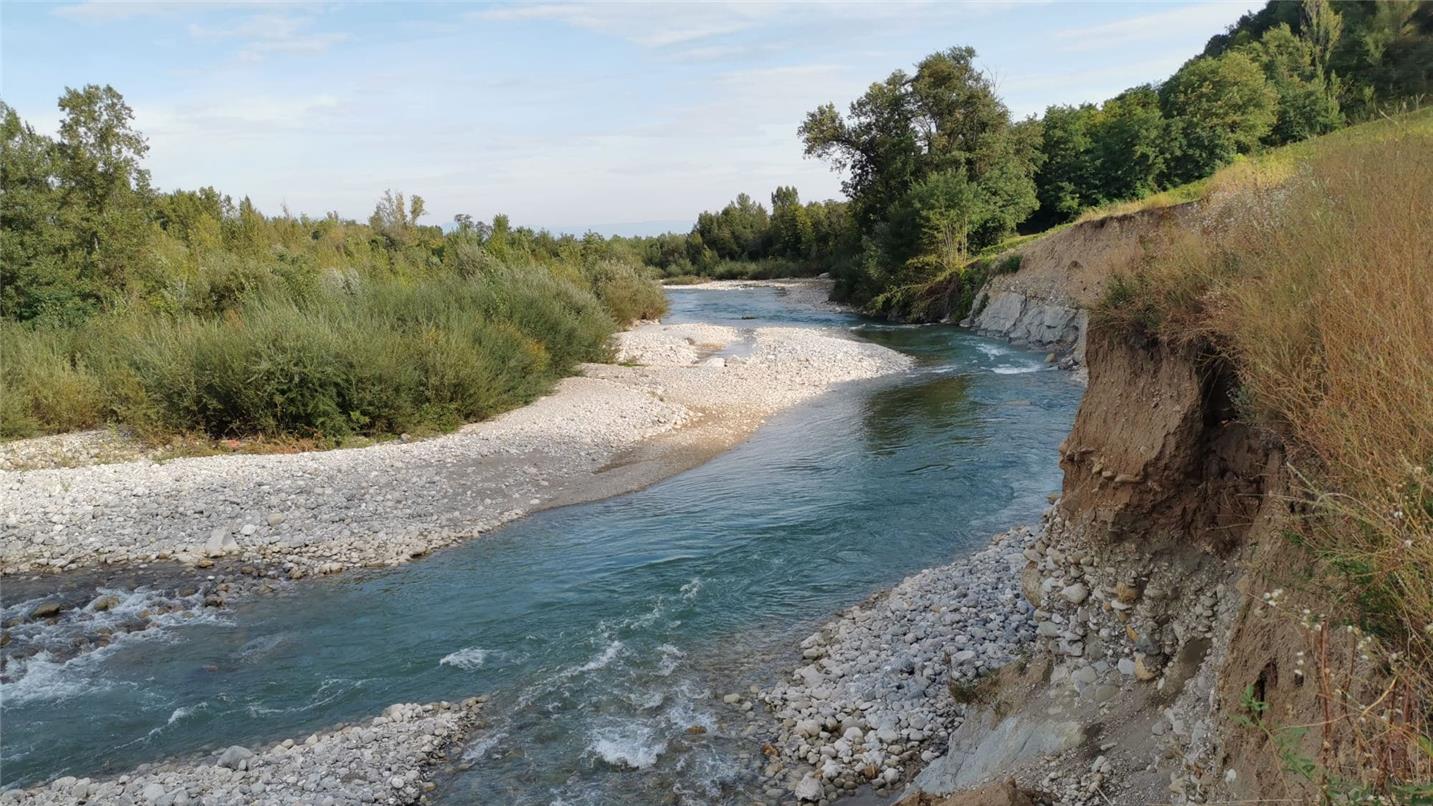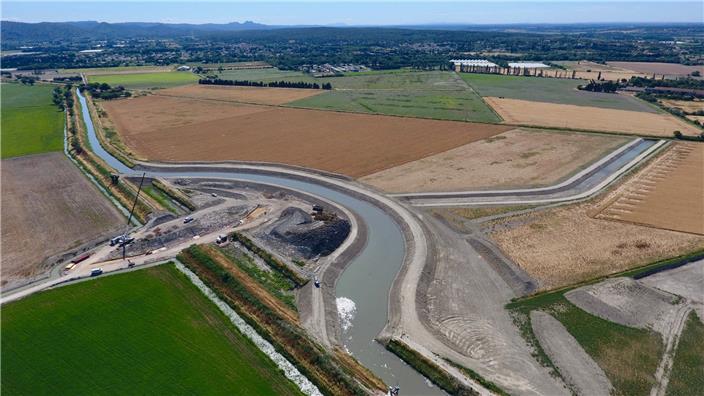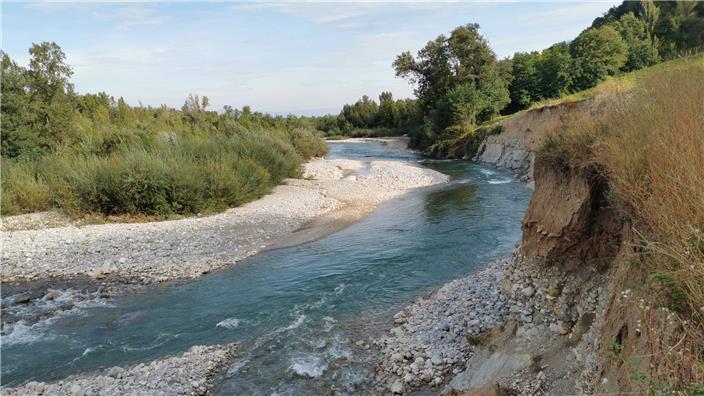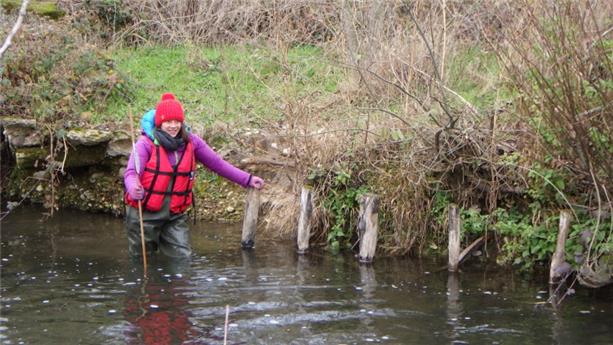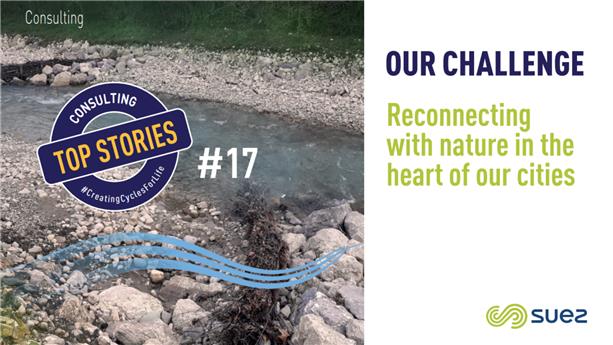
Defined actions
GEMAPI expertise focuses on structuring and coordinating management of aquatic environments and prevention of flooding. Local authorities, which are qualified to manage drinking water, sanitation, municipal wastewater and, for some, planning, have the opportunity to define an integrated policy to address these issues.
GEMAPI actions focus on objectives regarding article L.211-7 of the French environment law:
The framework Directive on water (DCE) and the flood Directive set a framework and ambitious goals for balanced resource management, and for protection and restoration of disturbed ecosystems.
Flood prevention can be managed through damming, retention basins and/or morphological rectification of waterways. However, the lack of “biodiversity” or “natural” solutions generally associated with these types of structure cause discontinuity in the natural function of waterways.
To address this, it is vital that we take into account all sections of a waterway, and accommodate many different issues.
GEMAPI actions focus on objectives regarding article L.211-7 of the French environment law:
- Development of catchment basins or part of a catchment area,
- Maintenance and development of streams, rivers, canals, lakes and ponds,
- Flood and coastal flood resilience,
- Protection and restoration of sites, aquatic ecosystems and wetlands, and development of surrounding woodland.
The framework Directive on water (DCE) and the flood Directive set a framework and ambitious goals for balanced resource management, and for protection and restoration of disturbed ecosystems.
Flood prevention can be managed through damming, retention basins and/or morphological rectification of waterways. However, the lack of “biodiversity” or “natural” solutions generally associated with these types of structure cause discontinuity in the natural function of waterways.
To address this, it is vital that we take into account all sections of a waterway, and accommodate many different issues.
To develop nature-based solutions
Faire renaître nos milieux naturels avec des solutions fondées sur la nature
Credit: SUEZ group
To meet safety issues and address the challenges of ecological restoration of natural environments, the solutions developed by teams at SUEZ Consulting draw on ten years of expertise and experience. Nature-based solutions aim to protect and restore environments through sustainable management of ecosystems. While of course benefiting the natural environment, it also addresses social issues through ecosystem services offered by nature.
The application of these solutions in fluvial hydraulics planning projects is based on ecological engineering techniques, particularly plant-based solutions, with a set of processes based on the application of living things. In certain situations, ecological engineering offers an alternative or complementary solution to traditional civil engineering-based flood prevention solutions.
The most frequently-applied solutions of the many actions we undertake are:
The application of these solutions in fluvial hydraulics planning projects is based on ecological engineering techniques, particularly plant-based solutions, with a set of processes based on the application of living things. In certain situations, ecological engineering offers an alternative or complementary solution to traditional civil engineering-based flood prevention solutions.
The most frequently-applied solutions of the many actions we undertake are:
- Bank reinforcement using soil bioengineering solutions: plant-based banks, beds of seedlings and plants, cuttings, stakes, layers of branches with shoots, wooden crates covered with plants, etc. The aims here are to stabilise structures, reduce speed, or fight lateral erosion
- Ecomorphological restoration: redevelopment to ensure the river can flow properly, re-meandering, river deviation, development of flood expansion zones, removal of lateral structures, restoration of surrounding wetlands and the entire alluvial area. The aims focus on ecosystem services, speed reduction, erosion control, flood reduction, and biodiversity enhancement
- Removal of lateral constraints, allowing the river to erode its banks in areas where there is less risk of flooding, with ecosystem services, speed reduction, sedimentary and morphological balance, and flood reduction objectives
- Removal of longitudinal constraints: restoration of ecological continuity (sedimentary and piscicultural) to ensure the free movement of fish and sediment
- Plant-based restoration of river banks: creation of green corridors or reduce flow rates
- Greener catchment basins (farmed or natural): encourage dynamic slowdown and fight soil erosion
"Flood resilience: GEMAPI, a dedicated expertise", by David Mellet (project manager, River Hydraulics Unity - SUEZ Consulting)
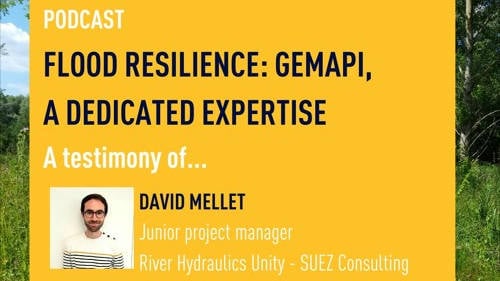
A dedicated expertise
For several years now, our teams have been offering their expertise to the local authorities that have contracted SUEZ Consulting to oversee the ecological restoration of natural habitats and the prevention of flood risks through major restoration projects.
We apply our operational expertise in the following catchment basins:
We apply our operational expertise in the following catchment basins:
La Saleine (southernmost department in the Auvergne-Rhône-Alpes region of South-eastern France):
- Restoration of the ecological functions of the minor riverbed
- Increase in the river's lateral mobility
- Levelling of the protection dike at La Condamine joint development zone
L’Arve (Haute-Savoie, department located in the Rhone-Alpes region of eastern France):
- Raising and extending La Châtelaine damming system, including reinforcement using plant and mineral-based bioengineering techniques on the banks
- Ecomorphological restoration of the Arve river by widening the active bed, remobilising sedimentary bars, deploying revegetation techniques
- Integration in the landscape through viewing windows and educational measures
Le Sierroz (Savoie, department in the Auvergne-Rhône-Alpes region of South-eastern France):
Introduction of a rugged, rip-rap ramp to encourage the fish run particular attention was paid to fish species, including the lake trout which is symbolic of Bourget Lake's catchment basin.
La Leysse (Savoie):
Removing obstacles (barriers) preventing the free movement of fish, and ensuring transparency of sediment transport.
L’Hyères (Savoie):
- Protecting persons and property from the risk of flooding, and restoring aquatic and river environments
- Reinforcing protection dikes and renaturing the minor river bed
Haute-Jarrie nature reserve (Isère, department in the Auvergne-Rhône-Alpes region of South-eastern France):
Increasing surfaces of open water by restoring the environment's hydrological and ecological connections and diversifying semi-aquatic habitats.
Pictures: © SUEZ
Contact
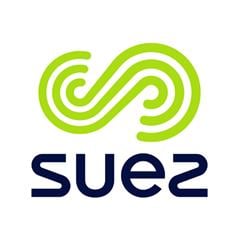
Florent PEZET
Project Director • France East department
[email protected]
